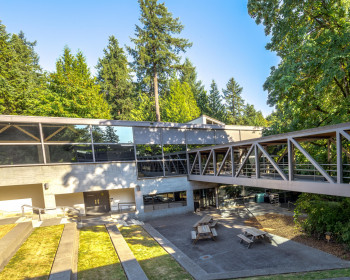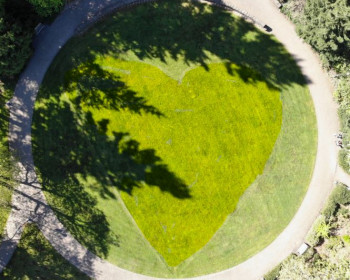Fall Law School Environmental News
Open gallery
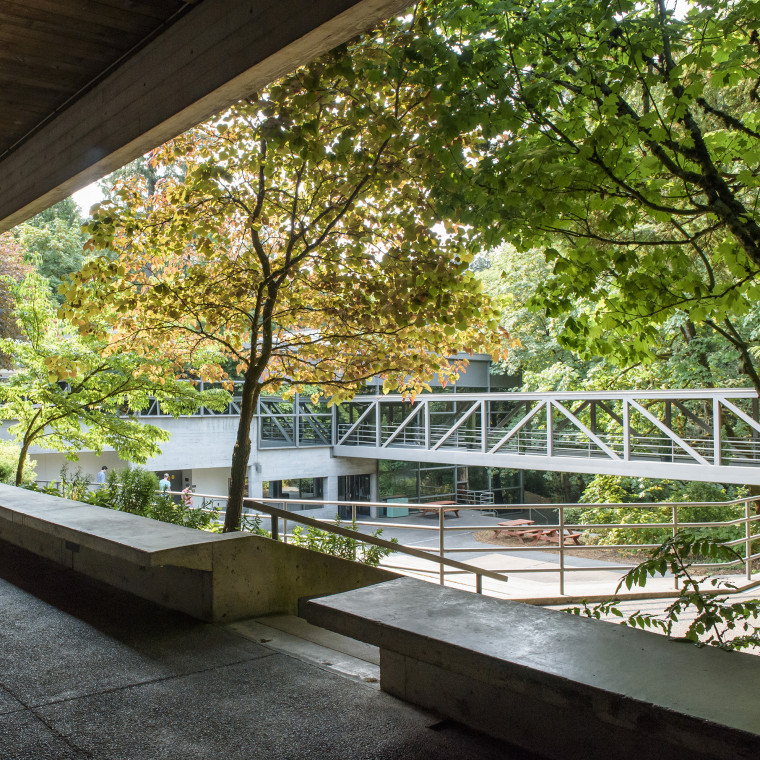
This fall, we continue to celebrate the 50th Anniversary of the Environmental Law program. While this year hasn’t gone in a direction anyone would have predicted, the Environmental, Natural Resources, and Energy Law program and our students have adapted to the new normal and continue to press forward in the ever-changing climate of 2020. We have a mix of students, faculty, and staff on-campus or at-home, taking classes, teaching, and working. We’re pleased that our program continues to evolve, in part due to our expanding online offerings, and we are looking forward to the next 50 years.
The Environmental Law program has blossomed beyond the doors of the institution, creating relationships and opportunities for traditional and non-traditional law students alike. We’re hearing from people who want, and need, to know more about the impact of environmental law on the huge challenges our society and planet face in the 21st century. We collaborated with the law school’s ground-breaking Center for Animal Law Studies to launch an expansion of international wildlife projects through the Global Law Alliance for Animals and the Environment. With our growing Master of Studies in Environmental Law program, now offered online along with our LLM degree, our creative new courses, our federal agency trainings, and our clinics and centers, all of which bring in scientists, journalists, policy makers, teachers and other “non-law” professionals, we are expanding the definition of what it means to be a student, and school, of law.
Read below for an essay by Professor Michael Blumm regarding the origins of the Environmental Law journal and its impact on scholarship, news about our new Global Law Alliance, our expanding online offerings, this fall’s Distinguished Visitor lecture by Professor Alexandra Klass, and the many awards and events that are part of our dynamic environmental law program.
Online and Summer Classes - NOTE: Lewis & Clark offers a wide array of courses online through its distance learning LLM, and MSL programs. We welcome applications to start spring, summer, or fall 2021. Visiting law students and auditors are also welcome to enroll in any of these online courses.
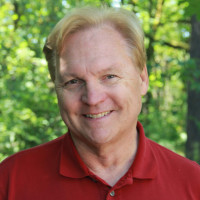
Professor Blumm wrote a celebratory essay marking the 50th anniversary of the first issue of Environmental Law, the nation’s oldest and most comprehensive law student-edited law review focused on environmental law. The article, “Environmental Law at 50: A Cutting-Edge Journal Examining the Central Issues of Our Time”, discusses the founding of the journal in 1970 and surveys the many important symposia and articles it has published over the years.
Spring 2021 symposium
The Environmental Law program will host its annual symposium on Saturday March 13, 2021. The theme will be the relationship of food choices to energy use and climate change. Topics will include the impacts of plastics in our food chain, climate friendly/eco-friendly food labeling. CAFOs, monocultures, pesticides, crop-seed systems, and the impacts of food choices in a pandemic. Since the event will be virtual, everyone is welcome to tune in from wherever they are. More details and registration information will be posted on our website later this fall.
Summer Courses 2021
Administrative Law will be offered online and Environmental Law will be on campus this summer. International Wildlife Law will also be offered on campus as a two week/two credit summer course. Visiting law students and auditors are welcome in all summer courses. Contact us at elaw@lclark.edu for more information.

Clinical Professor Erica Lyman leads Lewis & Clark Law School’s Global Law Alliance for Animals and the Environment, which combines Lewis & Clark’s nationally recognized expertise in environmental law and animal law. The Alliance is a champion for wild animals and wild spaces across the globe, working to protect animals and the environment through the development, implementation, and enforcement of international law. Law students (JD and LLM) actively participate in the work through two clinics within the Alliance. Lyman is joined by Senior Staff Attorney, Nick Fromherz, an expert in international wildlife law in his own right, with particular expertise in Latin America as he lives and works in Bolivia.
Lewis and Clark’s top ranked Environmental, Natural Resources, and Energy Law Program has housed many wildlife initiatives, trainings, and courses over its 50 years of existence. “Now is the time to pull the same oar,” says Associate Dean and Director of the Environmental Law Program Janice Weis, “What affects the environment, affects the animals, and ultimately, each of us. We are pleased to be collaborating with the Center for Animal Law Studies and we cannot wait to see all that Professor Lyman and the students accomplish, together, to effectuate critically needed change for animals and the environment.” Read more about the Global Law Alliance here.

Professor Alexandra Klass, Distinguished McKnight University Professor of Law at the University of Minnesota School of Law, was the Distinguished Environmental Law Visitor at Lewis & Clark this fall. In October, she delivered a lecture on “U.S. Energy Transitions in the Trump Administration: A Law and Policy Perspective” (via webinar) to a wide audience of environmental law alums, practitioners, faculty, and students. The Distinguished Environmental Law Visitor lecture was preceded by awards to distinguished environmental law alumni and recent graduates. Watch the recording of the live lecture event here (starts at 27th minute after alumni awards ceremony).

In addition to our Environmental, Natural Resources, & Energy Law online LLM degree, we now offer the Master of Studies in Environmental Law (MSL) degree online as well. The MSL graduate degree is for those who have a bachelor’s degree and are interested in learning about environmental law and policy, but who do not wish to practice law or obtain a law degree. MSL students take the same high quality courses as JD and LLM students, with support from program staff. Graduates move on to a wide variety of jobs, including with legislatures, corporate leadership, the nonprofit sector, federal agency administration, teaching, and journalism. You can read more about the MSL program here.

Maddy Munson ’21 is the third Wyss Scholar to be selected from the law school. As a Wyss Scholar, Maddy will receive a stipend for a summer position after her 2L year with a nonprofit or public sector conservation organization dedicated to the Intermountain West, membership in the Wyss Scholars network, generous tuition assistance for her 3L year, the ability to apply for a Wyss Scholars’ Small Grants Program to propose professional development events, and two post-graduation payments upon entering in a qualified career position. The Wyss Foundation is a private, charitable organization dedicated to western public lands issues, and its Scholars Program supports graduate-level education for the next generation of leaders in western land conservation. JD students in their second year at Lewis & Clark who are interested in natural resources and public lands issues on western lands, may apply to serve as Wyss Scholars.

The Environmental, Natural Resources, and Energy Law Program announced the first four recipients for Diehl Fellowships: Audrey Leonard ’20, Jesse Caldwell ’20, Teryn Yazdani ’20, and Dani Replogle ’19. Each Fellow will receive a $40,000 stipend for their work in public interest environmental law.
Lewis & Clark Law School is the recipient of a bequest from John E. Diehl who was an active environmentalist in Washington. The Diehl bequest supports a fellowship program for Lewis & Clark Law School graduates who are planning to work in public interest environmental law. The bequest specified a preference for graduates who are “dedicated to resource conservation, wilderness and wildlife habitat and preservation, or human population stabilization.” This year’s Diehl Fellows embody these principles and have shown their dedication to public interest environmental law.
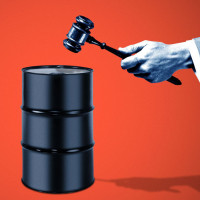
Several Lewis & Clark Law alums, Ryan Talbott ’12, Derek Teaney ’04, and Ben Luckett ’10, played important roles in a recent D.C. Circuit Court of Appeals case, Allegheny Defense Project v Federal Energy Regulatory Commission (FERC), where the court, sitting en banc, overturned 50 years of precedent and found that FERC “violated the law by routinely issuing ‘tolling orders’ that prevent pipeline opponents from seeking judicial review.” A fourth alum, Ellen Gilmer ’14 is the journalist who wrote a Bloomberg article analyzing the court’s decision.
More Environmental, Natural Resources, & Energy Law Stories
Environmental, Natural Resources, and Energy Law is located in Wood Hall on the Law Campus.
MSC: 51
email elaw@lclark.edu
voice 503-768-6649
Environmental, Natural Resources, and Energy Law
Lewis & Clark Law School
10101 S. Terwilliger Boulevard MSC 51
Portland OR 97219
